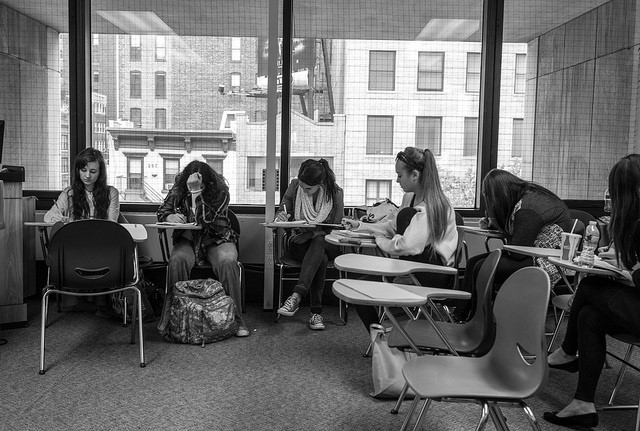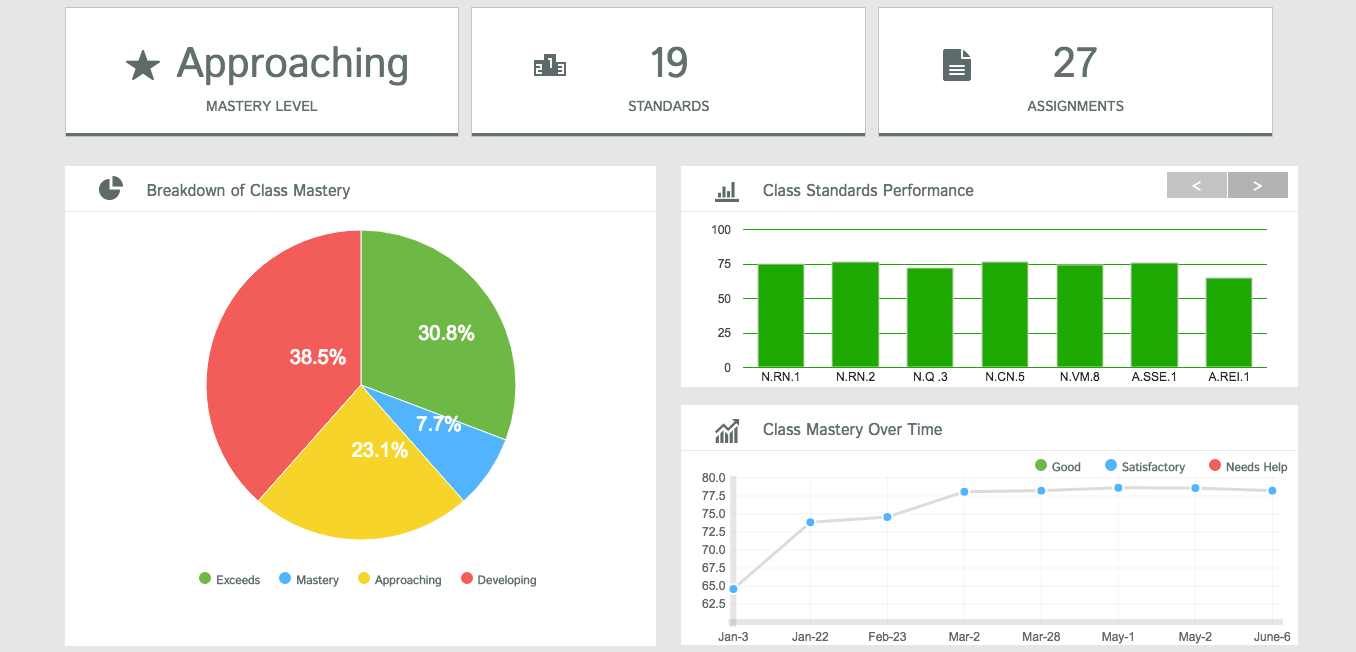Teachers: Make the Most of Your Classroom Assessments

While it’s usually outside the scope of a teacher’s responsibilities to make decisions about standardized testing in school, it is every teacher’s responsibility to perform classroom assessment.
Not every classroom assessment looks the same. There are several steps to take when deciding which assessments you will use. First, decide what information you want to retrieve from this assessment. Choose a technique or tool that is consistent with your teaching style and that offers no extra complications to students. Second, always inform your students about the purpose of an assessment activity before conducting it. Finally, after giving the assessment, review the results and make any necessary adjustments to teaching or lesson planning. Always inform your students of the results of an assessment.
Formal assessment implies that a test will be administered, and afterward students will receive a mark or grade. Informal assessment, or monitoring, on the other hand, is evaluated by descriptive criteria. You will come across many ways of assessing students, because each teacher will have his or her own system. For instance, experienced teachers will try informal approaches, such as observing students’ oral production or asking them to complete self-assessment sheets. This will help teacher’s spot diverse types of learners, and they will consequently gain a perception of the group style. This impression will then be further investigated with the aid of other forms of assessment, such as quizzes or brief essays.
It can be difficult to assess whether the student can apply the knowledge in contexts other than a multiple-choice task. Authentic assessments clearly show a student’s grasp of the knowledge and skills associated with a subject. As a consequence, there is a growing tendency for schools to ask for student portfolios (a summary of the student’s work over a certain grading period), which go hand in hand with state-of-the-art assessment methods, and clearly shows stages of progress in students’ work and feedback written by the teacher, the learner’s, or classmates. These should be specially designed to document students’ efforts, progress, and achievements.
Bear in mind that students and parents naturally expect feedback after an activity, whether formal or informal, carried out in class or sent as homework. Teachers are obliged to mark and analyze work critically, in order for their students to have a valuable learning experience. Feedback about what students can do to improve is essential. Through clear and conscientious feedback, teachers will convey the message that there’s always room for improvement, and this will generate a positive attitude toward work. Remember that assessment affects the learner’s motivation.
For learners to feel comfortable contributing in class or confident when completing a task, a grading system should convey fairness. Well-trained teachers analyze what is appropriate for the learner or the situation. Designing grading categories for every class may become a way to show more transparency and fairness when evaluating. Using simple rubrics, followed by short definitions for each category, will make it easier for students to understand their progress in class. Performance-based curriculums are a great way to encourage students to be creative, innovative, and constructive. Assessing student projects, however, can sometimes be a problem because often there is no clear-cut answer. For this reason, rubrics have become increasingly popular. Some have suggested that, instead of the traditional A, B, C, D, and F grades, a rating scale of between three and five elements could be implemented. Following is an example of a basic rubric rating scale:
1. Excellent Progress
The student shows no difficulty in using the language area. (Remember that if this rating is used too frequently, it may lose its value.)
2. Expected Progress
The student is using the language according to the expectations set for his or her age.
3. Unsatisfactory Progress
The student is not keeping up with the content planned for the class. Students should be presented with rubrics at the beginning of the project unit, which will allow them to be more autonomous when analyzing their own work and to understand the reasons for the teacher giving them one rubric score instead of another. Explaining rubrics at an early stage transmits a message of transparency and consistency to students.
Part of your job as a teacher will be to give low marks when work is below par. This is sometimes a very unpleasant task. As mentioned, there’s always room for improvement, and it’s also part of your job as a teacher to make that happen. Learners will be able to perform better and achieve at the desired level, aided by an effective assessment program and remediation.
When creating a classroom assessment, it is important to remember that “assessment” is not the same as “evaluation.” Though assessment and evaluation are generally used interchangeably, there are subtle differences between the terms. For example, a chemist inspects some liquid he has collected in a test tube. At first glance, he can describe its density, smell, and color. He is assessing the material. After the assessment, he takes a sample and analyzes the combination of particles the liquid contains. He is now evaluating the material. Let’s take an example related to education.
A teacher might assess the level of interest in environmental matters in her classroom by asking for a show of hands or encouraging students to brainstorm topics. To switch her planning accordingly, she then uses the information to think of exercises more likely to capture her students’ attention. But if this teacher gives a test on recycling and assigns a mark to it, she is evaluating her students in terms of academic achievement. So, assessments are not necessarily considered evaluations.
Think about what kind of progress your students need to make, and what would make the best benchmarks to look for would be. Classroom assessment is a chance for you to exercise your autonomy as a teacher – make the most of it.




